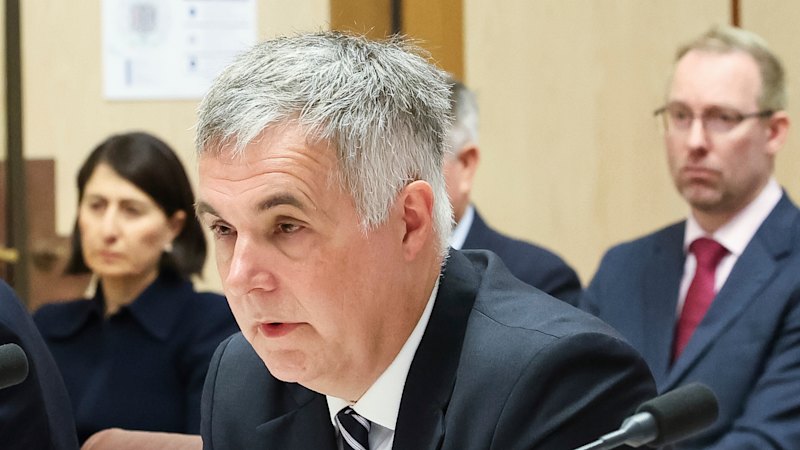
News
November 03, 2025
Inside the weeks-long Optus failures that led to a Triple Zero crisis
It has taken the country’s second-largest telecoms group nearly seven weeks to come clean about how its troubles led to multiple fatalities this year.
**Inside the weeks-long Optus failures that led to a Triple Zero crisis**
Optus, Australia's second-largest telecommunications provider, has finally revealed the extent of network failures that crippled vital services, including Triple Zero emergency calls, earlier this year. The revelations come nearly seven weeks after the initial incidents, sparking public outrage and raising serious questions about the company's transparency and network resilience.
The issues, which occurred over several weeks, resulted in widespread disruptions to mobile and internet services for Optus customers nationwide. While initial reports focused on general connectivity problems, the company has now confirmed that these outages directly impacted the ability of some individuals to contact emergency services via Triple Zero.
The admission is particularly troubling because the time-critical nature of Triple Zero calls means any delay or failure can have devastating consequences. According to statements released by Optus, the network issues were complex and multifaceted, involving a combination of software glitches, hardware malfunctions, and network congestion. The precise chain of events that led to the Triple Zero failures is still under investigation, but the company acknowledges that its response was not swift enough.
What’s more concerning is the delay in publicly disclosing the full impact of these failures. It has taken Optus almost two months to fully acknowledge the deadly consequences of the network issues. This lack of immediate transparency has been met with criticism from the public, government officials, and consumer advocacy groups. Many are questioning why it took so long for Optus to reveal the true extent of the problem, especially given the potential for loss of life.
The company has issued an apology for the inconvenience and distress caused by the outages and the subsequent delay in disclosing the full impact. Optus has promised to conduct a thorough review of its network infrastructure and emergency response protocols to prevent similar incidents from happening in the future. The review will include an assessment of its monitoring systems, redundancy measures, and communication strategies.
However, for many, the apology is not enough. Calls are growing for an independent inquiry into the Optus network failures, with some demanding stronger regulations and penalties for telecommunications companies that fail to provide reliable access to emergency services. The incident serves as a stark reminder of the critical importance of robust and resilient telecommunications infrastructure in a modern society, and the need for accountability when things go wrong.
Optus, Australia's second-largest telecommunications provider, has finally revealed the extent of network failures that crippled vital services, including Triple Zero emergency calls, earlier this year. The revelations come nearly seven weeks after the initial incidents, sparking public outrage and raising serious questions about the company's transparency and network resilience.
The issues, which occurred over several weeks, resulted in widespread disruptions to mobile and internet services for Optus customers nationwide. While initial reports focused on general connectivity problems, the company has now confirmed that these outages directly impacted the ability of some individuals to contact emergency services via Triple Zero.
The admission is particularly troubling because the time-critical nature of Triple Zero calls means any delay or failure can have devastating consequences. According to statements released by Optus, the network issues were complex and multifaceted, involving a combination of software glitches, hardware malfunctions, and network congestion. The precise chain of events that led to the Triple Zero failures is still under investigation, but the company acknowledges that its response was not swift enough.
What’s more concerning is the delay in publicly disclosing the full impact of these failures. It has taken Optus almost two months to fully acknowledge the deadly consequences of the network issues. This lack of immediate transparency has been met with criticism from the public, government officials, and consumer advocacy groups. Many are questioning why it took so long for Optus to reveal the true extent of the problem, especially given the potential for loss of life.
The company has issued an apology for the inconvenience and distress caused by the outages and the subsequent delay in disclosing the full impact. Optus has promised to conduct a thorough review of its network infrastructure and emergency response protocols to prevent similar incidents from happening in the future. The review will include an assessment of its monitoring systems, redundancy measures, and communication strategies.
However, for many, the apology is not enough. Calls are growing for an independent inquiry into the Optus network failures, with some demanding stronger regulations and penalties for telecommunications companies that fail to provide reliable access to emergency services. The incident serves as a stark reminder of the critical importance of robust and resilient telecommunications infrastructure in a modern society, and the need for accountability when things go wrong.
Category:
Technology